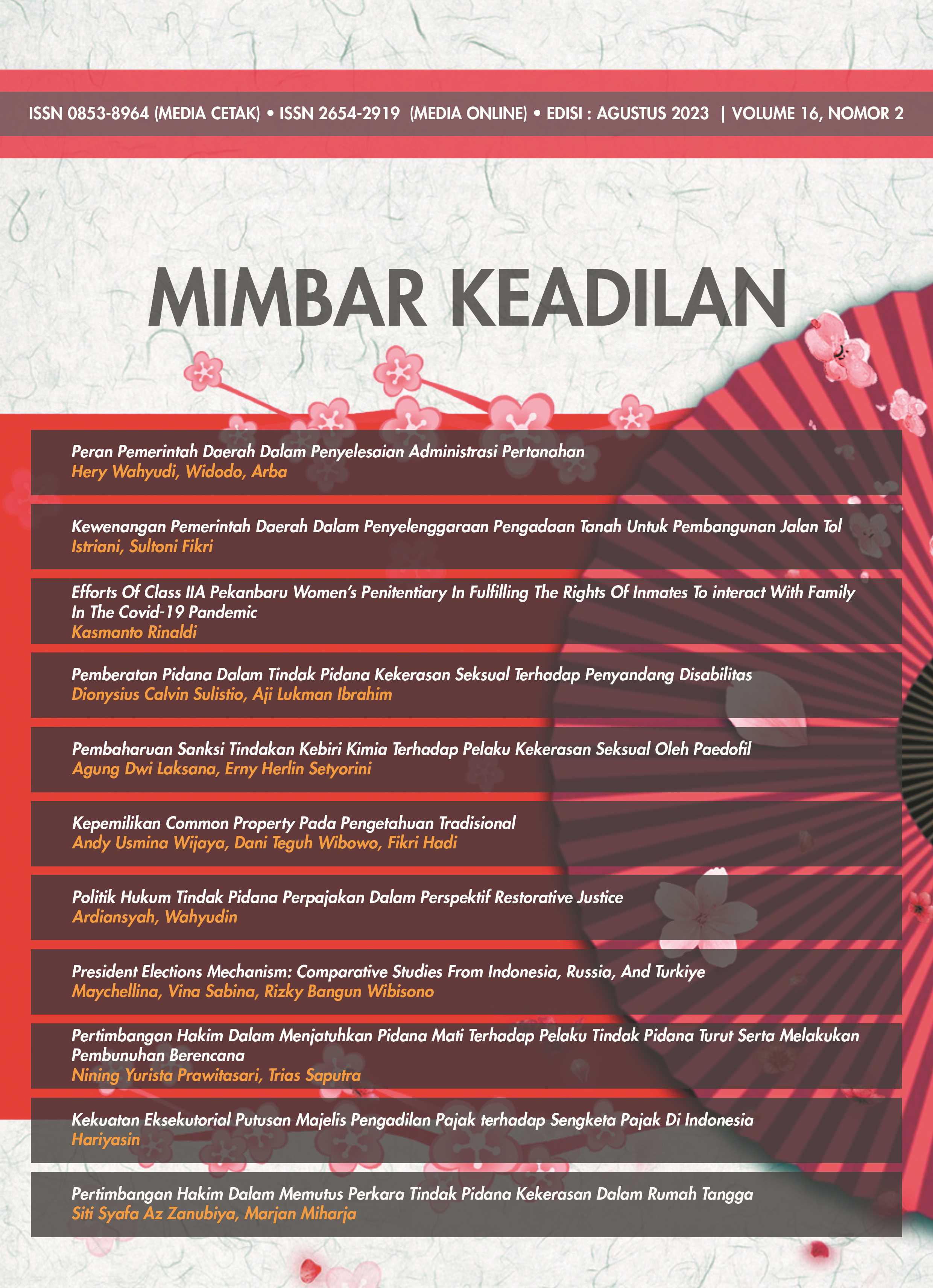Kewenangan Pemerintah Daerah dalam Penyelenggaraan Pengadaan Tanah Untuk Pembangunan Jalan Tol
DOI:
https://doi.org/10.30996/mk.v16i2.8399Keywords:
authority, development, local governmentAbstract
This study aims to identify and understand the mechanism of land acquisition for development in the public interest, and to analyze the form of local government authority in implementing land acquisition for toll road construction. This type of research is normative legal research using statutory and conceptual approaches. Development is one of the efforts to achieve general welfare. In a development, land is definitely needed, while land owned by the state is getting less and less, so land acquisition is necessary. The implementation of land acquisition cannot be carried out arbitrarily, and the implementation of land acquisition for the public interest must pay attention to the interests of development and the interests of the community. The results of this study show that the government is the executor of land acquisition, the mechanism of which consists of four stages, namely planning, preparation, implementation, and the delivery of results. Then, the government and regional governments have the authority to guarantee the availability of land and funding for land acquisition for the public interest and as the executor of land acquisition. The government and regional governments have an obligation to prioritize the welfare of their citizens because the principle of development in the public interest is aimed at increasing the welfare of all people. The regional government is obliged to ensure that the assessment of compensation in land acquisition is based on the principles of fairness, benefit, agreement and sustainability.
Downloads
Downloads
Published
Issue
Section
License
Authors who publish with Mimbar Keadilan agree to the following terms:
- Authors transfer the copyright and grant the journal right of first publication with the work simultaneously licensed under a Creative Commons Attribution-ShareAlike 4.0 International License.. that allows others to share the work with an acknowledgement of the work's authorship and initial publication in this journal.
- Authors are able to enter into separate, additional contractual arrangements for the non-exclusive distribution of the journal's published version of the work (e.g., post it to an institutional repository or publish it in a book), with an acknowledgement of its initial publication in this journal.
- Authors are permitted and encouraged to post their work online (e.g., in institutional repositories or on their website) prior to and during the submission process, as it can lead to productive exchanges, as well as earlier and greater citation of published work (See The Effect of Open Access)














